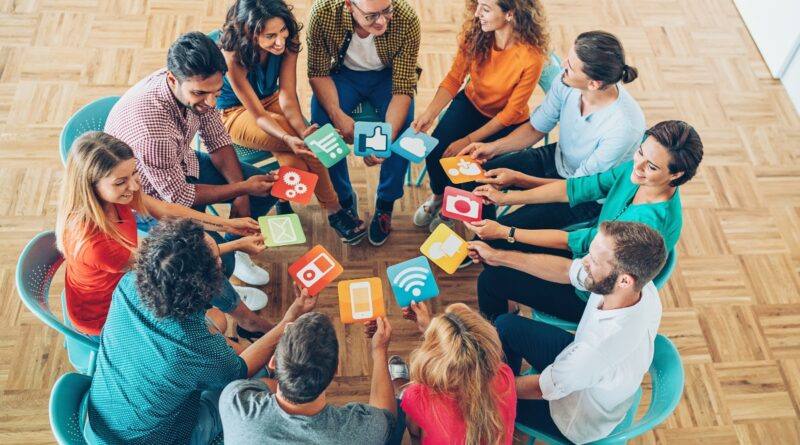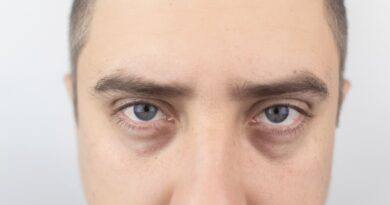The Distractions of Social Media and Their Side Effects
In today’s world, social media has become an integral part of our everyday routine. Whether it’s browsing Instagram, messaging on WhatsApp, or reacting to posts on Facebook, we often find ourselves constantly connected. While these platforms offer unparalleled convenience and connection, there’s a downside too. Social media tends to capture our attention in numerous ways, pulling us away from real-life engagements. And unfortunately, these distractions aren’t without consequences.
Let’s explore how social media is affecting our mental health, productivity, and relationships, as well as some strategies to reduce these distractions.
Why Can’t We Resist Social Media?
Have you ever found yourself reaching for your phone almost without thinking? That’s because social media platforms are cleverly designed to keep you engaged for as long as possible. Features like notifications, likes, and infinite scrolling create a loop that’s hard to break. Every time you get a notification or someone interacts with your post, your brain releases a feel-good chemical, dopamine. It’s that little rush that makes you want to check again and again.
Then there’s the fear of missing out—commonly called FOMO. We worry about not being in the loop when it comes to the latest trends, events, or what our friends are up to. This constant drive to stay updated makes it easy to lose track of time while scrolling.
How It Impacts Mental Health
Now, let’s talk about how social media can creep into our minds and affect our mental well-being. Many people don’t realize that spending too much time on these platforms can lead to feelings of anxiety, low self-worth, or even depression.
1. Endless Comparisons:
On social media, you’re often seeing a curated version of people’s lives—just the highlights, the best moments. When you compare that to your everyday life, it’s easy to feel like you’re falling short. Constantly seeing these “perfect” lives can make you feel less confident and anxious about your own accomplishments.
2. Sleep Disruption:
Late-night scrolling has become a habit for many of us. However, that blue light from your phone disrupts your sleep patterns, making it harder to fall asleep. Over time, poor sleep quality can lead to irritability, stress, and even worsen your mental health.
3. FOMO Strikes Again:
When you see others hanging out, going on trips, or attending events that you weren’t part of, the fear of missing out kicks in. This pressure to stay involved and constantly in the know can lead to feelings of isolation or anxiety.
A Hit to Productivity
Social media is also a major culprit when it comes to reduced productivity. Whether you’re at work, studying, or trying to focus on a project, a quick glance at your phone can easily spiral into a long distraction.
1. Interruptions Break Focus:
Every ping and notification takes your attention away from what you’re doing. Even if you just check your phone for a second, it breaks your focus. Studies show that once interrupted, it can take over 20 minutes to regain full concentration.
2. The Myth of Multitasking:
Many of us believe we can juggle work and social media without a hitch. But research proves that switching between tasks actually makes us less efficient. You end up doing both things poorly because your brain is constantly shifting gears.
3. Procrastination’s Best Friend:
Ever noticed that when you’re avoiding something difficult, you turn to social media? It’s a quick escape, but it often turns into hours wasted. Procrastination becomes easier when you have an endless stream of entertainment just a tap away.
The Strain on Personal Relationships
Though social media is meant to connect us, it can sometimes create distance in real-life relationships. When you’re more focused on your screen than the people around you, those relationships can suffer.
1. Less Meaningful Conversations:
Have you noticed that when friends or family gather, everyone’s often looking at their phones? While social media connects us to others, it can disconnect us from those right in front of us. Over time, this habit weakens our relationships as we miss out on real conversations and bonding moments.
2. Jealousy and Tension:
Social media can also bring up feelings of jealousy in relationships. For example, seeing your partner interact with others online, liking posts or commenting, can sometimes stir unnecessary insecurity and lead to misunderstandings.
3. Unrealistic Expectations:
Seeing other people’s seemingly “perfect” relationships or lifestyles online can create unrealistic expectations in our own lives. We might feel our relationships or achievements are falling short, which can cause dissatisfaction and even strain real-life connections.
Shrinking Attention Spans and Memory Problems
The constant flow of short, fast content on platforms like TikTok and Instagram can also affect how well we focus. As we get used to quick bits of entertainment, our ability to concentrate on longer, more complex tasks diminishes.
1. Attention Span Shrinks:
Because social media offers quick dopamine hits, we get used to rapid consumption of content. This rewires our brains to prefer short bursts of information, making it harder to sit through a book or a long article.
2. Memory Takes a Hit:
When we quickly scroll through vast amounts of information without engaging deeply, we tend to forget most of it. This weakens our ability to retain information in other areas of life as well.
How to Take Control of Social Media Distractions
The good news is, while social media has its downsides, we don’t have to let it control our lives. Here are some ways to reduce its distracting effects:
1. Set Time Limits:
Be mindful of how much time you spend online. Set daily limits or use built-in app tracking tools on your phone to reduce your time on social media. Even cutting back by 30 minutes can make a big difference.
2. Use Social Media Mindfully:
Before opening an app, ask yourself why you’re doing it. Are you just bored, or is there a real reason to check it? Being mindful can help you avoid mindless scrolling and make your social media use more intentional.
3. Turn Off Non-Essential Notifications:
Reducing the number of notifications can dramatically cut down on distractions. You don’t need to know about every like or comment instantly. This helps you stay more focused on the task at hand.
4. Take Breaks:
Digital detoxes, even for just a few hours a day, can be incredibly refreshing. Spend that time doing something offline, like reading, going for a walk, or spending quality time with loved ones.
Final Thoughts
Social media, when used wisely, can enhance our lives in many ways. But without boundaries, it can also become a source of distraction and stress. By setting limits, practicing mindful usage, and taking breaks, we can regain control and enjoy the benefits without letting social media take over our lives. Remember, life’s best moments often happen offline.





certainly like your website but you need to take a look at the spelling on quite a few of your posts Many of them are rife with spelling problems and I find it very troublesome to inform the reality nevertheless I will definitely come back again
Let us know in the comments which of their posts has resonated with you the most.